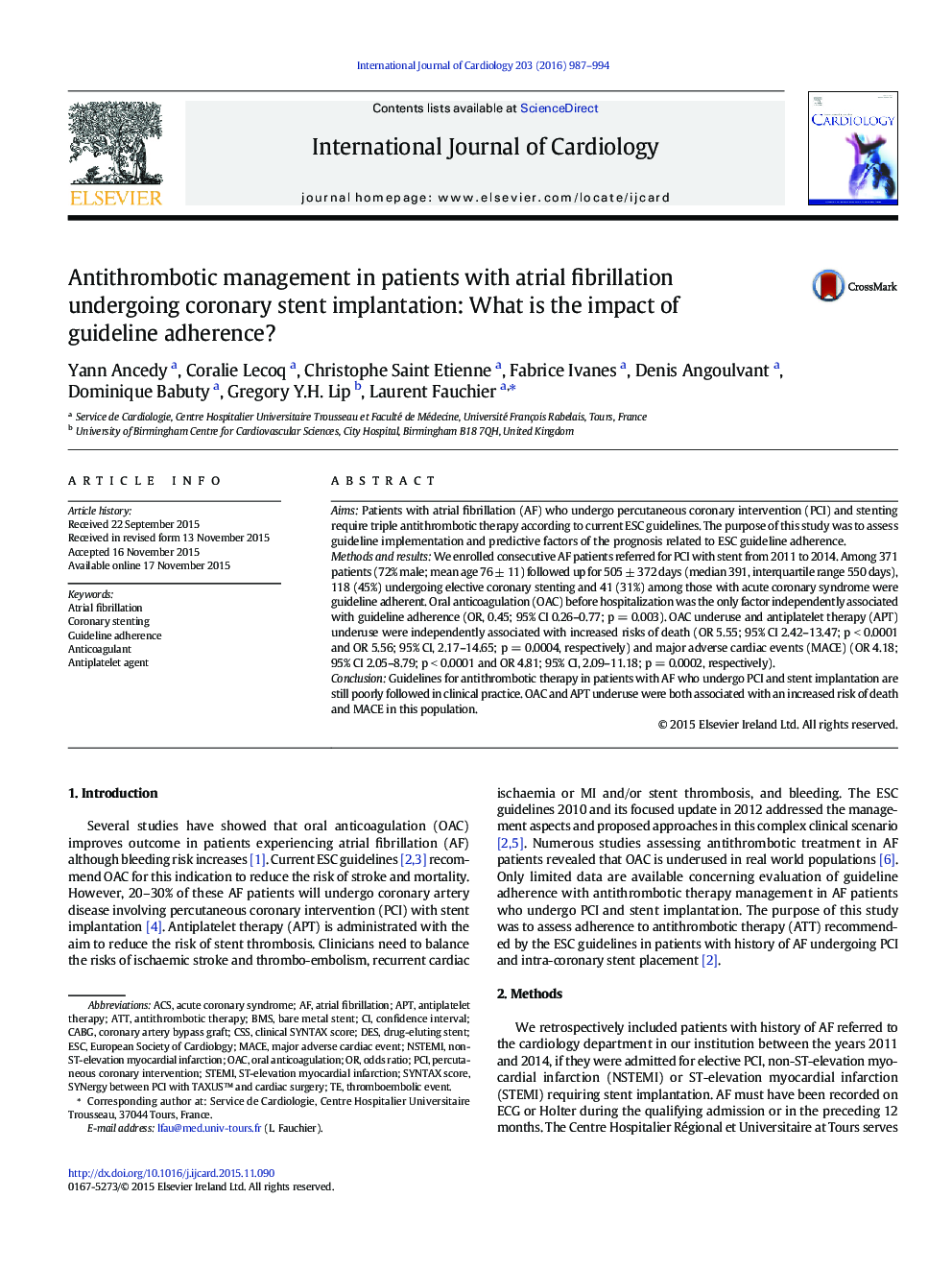| Article ID | Journal | Published Year | Pages | File Type |
|---|---|---|---|---|
| 5965772 | International Journal of Cardiology | 2016 | 8 Pages |
â¢Guidelines for anticoagulation are poorly followed in AF patients with PCI/stenting.â¢Oral anticoagulation at baseline is the main predictor of guideline adherence.â¢Anticoagulation and antiplatelet underuse are associated with a higher risk of MACE.â¢Non-adherence to guidelines is also associated with a higher risk of bleeding.
AimsPatients with atrial fibrillation (AF) who undergo percutaneous coronary intervention (PCI) and stenting require triple antithrombotic therapy according to current ESC guidelines. The purpose of this study was to assess guideline implementation and predictive factors of the prognosis related to ESC guideline adherence.Methods and resultsWe enrolled consecutive AF patients referred for PCI with stent from 2011 to 2014. Among 371 patients (72% male; mean age 76 ± 11) followed up for 505 ± 372 days (median 391, interquartile range 550 days), 118 (45%) undergoing elective coronary stenting and 41 (31%) among those with acute coronary syndrome were guideline adherent. Oral anticoagulation (OAC) before hospitalization was the only factor independently associated with guideline adherence (OR, 0.45; 95% CI 0.26-0.77; p = 0.003). OAC underuse and antiplatelet therapy (APT) underuse were independently associated with increased risks of death (OR 5.55; 95% CI 2.42-13.47; p < 0.0001 and OR 5.56; 95% CI, 2.17-14.65; p = 0.0004, respectively) and major adverse cardiac events (MACE) (OR 4.18; 95% CI 2.05-8.79; p < 0.0001 and OR 4.81; 95% CI, 2.09-11.18; p = 0.0002, respectively).ConclusionGuidelines for antithrombotic therapy in patients with AF who undergo PCI and stent implantation are still poorly followed in clinical practice. OAC and APT underuse were both associated with an increased risk of death and MACE in this population.
